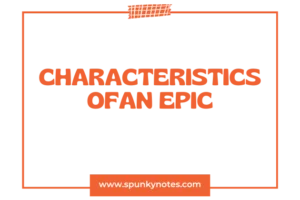

Estimated Reading Time: 6 min
Q. What is a discourse? Write a note on discourse analysis.
Discourse
In a broad sense, discourse refers to written or spoken communication or debate. It encompasses not just the use of language in speech and writing but also how knowledge, meanings, and ideas are produced, circulated, and interpreted in any given society or context.
Discourse is central to linguistics, philosophy, and the social sciences, among others, and its understanding varies slightly across these disciplines.
Key aspects of discourse include:
- Language Use
- Construction of Meaning
- Communication in Context
- Power and Ideology
- Interdisciplinary Nature
1- Language Use
Language use is about how we talk and write in different situations. It is more than just words; it is also about what we mean when we say those words.
For example, how we talk with friends differs from how we speak in class or at work. Language use changes based on where we are, who we are with, and what we do.
It is a big part of sharing ideas, telling stories, and understanding each other. Understanding this helps us communicate better in all kinds of situations.
2- Construction of Meaning
The construction of meaning is how we give meaning to the words we use. It is not just about the dictionary definition of a word but also how we understand these words in different situations.
For example, a simple word like “home” can mean different things to different people based on their experiences and feelings. We build meaning based on our culture, our experiences, and the context of our conversations.
It is why the same sentence can mean different things to different people. Understanding this helps us see why communication can sometimes be tricky and why it is important to consider others’ viewpoints.
3- Communication in Context
Communication in context means talking or writing in a way that fits your situation. The place, people around us, and what is happening all shape how we communicate.
For instance, how we chat with a friend differs from how we would talk in a job interview. It is not just about choosing the right words but also about understanding the setting and adjusting our language accordingly.
This helps us get our point across better and ensures we are understood how we intend to be. It is like picking the right outfit for the right occasion but with words.
4- Power and Ideology
Power and ideology in language are about how what we say can show who has more control or influence. It is also about the big ideas or beliefs that shape our world.
For example, in a classroom, the way a teacher talks usually shows they have more control than the students. Also, our words can reflect our beliefs about right and wrong or how society should work.
Understanding this helps us see that the way we talk or write can influence others and can show our own beliefs and the power dynamics around us.
5- Interdisciplinary Nature
The interdisciplinary nature of something means it involves ideas and knowledge from different areas, like a mix of subjects.
For example, when we talk about language, it is not just about grammar or vocabulary. It also includes how people think (psychology), how they live together (sociology), and their cultures (anthropology).
This mix helps us understand things better because we see them from many sides, not just one. It is like putting together pieces from different puzzles to get a complete picture. This approach helps us learn more and find new ways to solve problems.
Critical Discourse Analysis
Critical Discourse Analysis (CDA) is a way of studying how language is used. It is not just about words; it is about digging deeper to understand what these words really mean and how they affect people and society.
Here is a more detailed look at CDA in simple terms:
What is CDA?
CDA looks at spoken and written language to find out what is really going on beneath the surface. It is like being a detective for language. This method helps us see how what we say or write can influence people’s thoughts, beliefs, and actions.
Why is CDA Important?
- Understanding Power: Language can show who has power in a conversation or society. For example, a boss talking to an employee usually speaks differently than the other way around.
- Seeing Beyond Words: CDA helps us see the hidden messages in language. Sometimes, the way something is said can have a significant impact, like making one group of people seem better or worse than another.
- Spotting Unfairness: It can reveal unfair or biased ways of discussing people or topics. It is important for understanding and fixing problems in how we communicate.
- Changing Perspectives: By examining language closely, CDA can help change the way we think about specific topics or groups of people.
How Does CDA Work?
- Looking at Context: CDA pays close attention to where and how language is used. The same words can mean different things in different situations.
- Analyzing Structure: It looks at how sentences are put together. The structure of a sentence can sometimes tell more than the words themselves.
- Exploring Social Connections: CDA explores how language connects to social issues like gender, race, and class. It shows how our talk and texts can reflect social norms and values.
Examples of CDA
- News Articles: By analyzing how news stories are written, CDA can reveal if the media is biased towards certain viewpoints.
- Political Speeches: Looking at politicians’ speeches can show how they use language to persuade or manipulate the public.
- Advertisements: CDA can uncover the hidden messages in ads, like how they might affect people’s emotions or stereotypes.
Impact of CDA
- Better Communication: Understanding the deeper meanings in language helps us communicate more clearly and fairly.
- Education: It is an excellent tool for teaching people how to be critical thinkers, especially about the media and political messages.
- Social Change: CDA can help bring about positive societal changes by highlighting and challenging unfair language practices.
Critical discourse analysis is a powerful way of understanding language’s deeper meanings and impacts. It helps us see how language shapes our thoughts, beliefs, and society.
By using CDA, we can become more aware of the power of words and work towards a more fair and understanding world.


